
Labs Growing Plants: Role of Specialized Grow Lights in Tissue Culture
- Home
- Labs Growing Plants from Tissue Cultures: The Role of Specialized Grow Lights
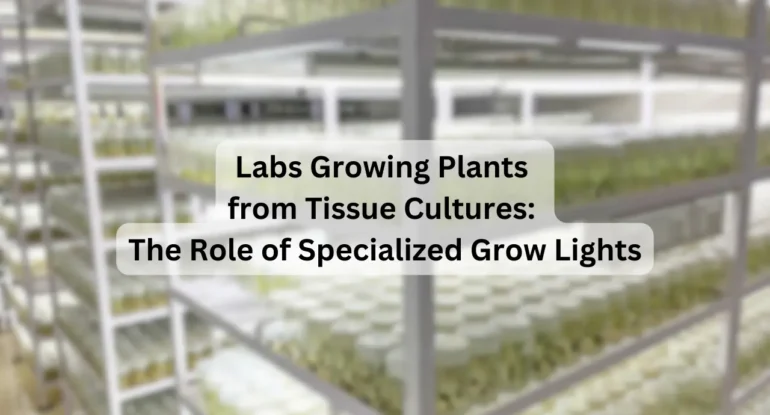
Labs Growing Plants from Tissue Cultures: The Role of Specialized Grow Lights
Labs Growing Plants from Tissue Cultures: The Role of Specialized Grow Lights
Plant tissue culture has revolutionized agriculture, horticulture, and biotechnology by enabling the mass production of plants from a small piece of plant tissue. This technique provides numerous advantages, including disease-free plant propagation, rapid multiplication, and conservation of rare or endangered plant species. However, the success of plant tissue culture relies heavily on controlled environmental conditions, where specialized grow lights play a pivotal role.
Understanding Plant Tissue Culture
Plant tissue culture is a technique used to grow plant cells, tissues, or organs under sterile conditions on a nutrient-rich medium. This process relies on the totipotency of plant cells—their ability to regenerate a whole plant under the right conditions.
Key Steps in Plant Tissue Culture:
- Selection of Explant: A small piece of plant tissue (explant) is taken from the plant’s leaves, stems, roots, or meristems.
- Sterilization: The explant is sterilized to prevent microbial contamination.
- Initiation: The explant is placed on a culture medium containing essential nutrients and hormones.
- Multiplication: The cells multiply to form a callus or grow into shoots and roots.
- Regeneration: The shoots and roots develop into complete plants.
- Acclimatization: The plantlets are transferred to soil and gradually exposed to external environmental conditions.
Importance of Light in Tissue Culture
Light is a critical factor in plant tissue culture, influencing photosynthesis, photomorphogenesis, and photoperiodism. While plants in natural conditions rely on sunlight, tissue culture environments require artificial lighting to simulate optimal light conditions. The type, intensity, spectrum, and duration of light affect the growth and development of plantlets.
Key Functions of Light in Tissue Culture:
- Photosynthesis: Light provides energy for photosynthesis, enabling plants to produce food.
- Photomorphogenesis: Light signals regulate plant morphology, such as leaf expansion, stem elongation, and root growth.
- Photoperiodism: Light cycles influence flowering and other physiological processes.
Why Specialized Grow Lights Are Essential
Standard lighting systems are insufficient for tissue culture labs due to their inability to provide the specific light spectra and intensity required by plants. Specialized grow lights are designed to mimic the spectral quality of sunlight and provide precise light conditions to enhance tissue culture success.
Key Features of Specialized Grow Lights:
- Customizable Light Spectra: Grow lights can emit specific wavelengths (e.g., blue and red light) to optimize photosynthesis and plant development.
- Controlled Intensity: Adjustable light intensity ensures that plants receive adequate energy without stress or damage.
- Energy Efficiency: Modern grow lights, like LEDs, consume less energy while providing high output, reducing operational costs.
- Uniform Light Distribution: Grow lights ensure even light exposure across the culture vessels, promoting consistent growth.
- Low Heat Emission: Tissue culture plants are sensitive to heat, and specialized grow lights minimize heat buildup.
Types of Specialized Grow Lights for Tissue Culture
Different types of grow lights are used in tissue culture labs, each with unique advantages and applications.
1. LED Grow Lights
Light-emitting diode (LED) grow lights are the most popular choice for tissue culture due to their efficiency, longevity, and ability to provide precise light spectra.
- Advantages:
- Energy-efficient and cost-effective.
- Emit specific wavelengths for targeted plant growth.
- Long lifespan (up to 50,000 hours or more).
- Produce minimal heat, reducing the risk of tissue damage.
- Environmentally friendly and mercury-free.
- Applications:
- Promoting shoot and root development.
- Enhancing photosynthesis with red and blue light spectra.
- Adjusting light conditions for specific plant species.
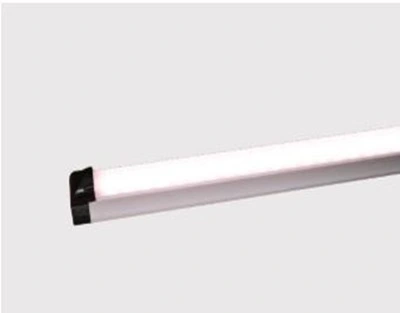
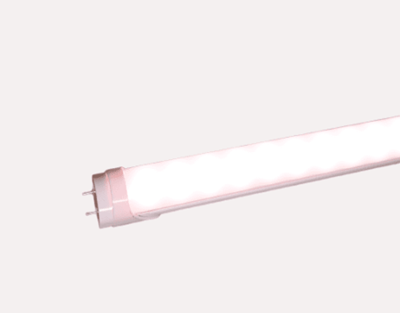
Recommended Grow Lights for Tissue Culture
2. Fluorescent Lights
Fluorescent lights, such as T5 and T8 tubes, have been traditionally used in tissue culture labs.
- Advantages:
- Provide broad-spectrum light suitable for general plant growth.
- Affordable and widely available.
- Low heat output compared to incandescent lights.
- Limitations:
- Shorter lifespan compared to LEDs.
- Lower energy efficiency.
- Limited spectral customization.
3. High-Pressure Sodium (HPS) Lights
HPS lights emit intense yellow and red light, which is beneficial for flowering and fruiting stages.
- Advantages:
- High light intensity promotes robust plant growth.
- Suitable for larger-scale tissue culture operations.
- Limitations:
- High heat output requires additional cooling systems.
- Less effective for early stages of tissue culture.
4. Metal Halide (MH) Lights
MH lights emit blue light, which is essential for vegetative growth.
- Advantages:
- Encourages healthy shoot and leaf development.
- Useful for initial stages of tissue culture.
- Limitations:
- High energy consumption and heat output.
- Shorter lifespan compared to LEDs.
Choosing the Right Grow Lights for Tissue Culture
Selecting the appropriate grow light depends on several factors, including the plant species, growth stage, and lab requirements.
Key Considerations:
- Light Spectrum: Red and blue wavelengths are most critical for photosynthesis and growth.
- Light Intensity: Measured in micromoles per square meter per second (µmol/m²/s), the intensity should match the plant’s requirements.
- Light Duration: The photoperiod (light/dark cycle) influences growth and development.
- Heat Management: Low-heat lights prevent overheating and tissue damage.
- Energy Efficiency: Energy-efficient lights reduce operational costs in large-scale labs.
Applications of Tissue Culture with Specialized Grow Lights
The use of tissue culture combined with specialized grow lights has diverse applications across industries:
1. Agriculture
- Mass propagation of disease-free crops such as bananas, potatoes, and sugarcane.
- Production of high-yield and stress-tolerant plant varieties.
2. Horticulture
- Propagation of ornamental plants like orchids, roses, and lilies.
- Development of new plant varieties with desired traits.
3. Forestry
- Conservation of endangered tree species through micropropagation.
- Reforestation projects using lab-grown saplings.
4. Pharmaceuticals
- Cultivation of medicinal plants for active ingredient extraction.
- Production of genetically modified plants for pharmaceutical research.
5. Research and Development
- Study of plant growth and development under controlled conditions.
- Development of innovative agricultural and horticultural techniques.
Future Trends in Tissue Culture Lighting
The integration of advanced technologies is shaping the future of tissue culture lighting:
1. Smart Lighting Systems
- IoT-enabled grow lights allow remote monitoring and control of light settings.
- Automated adjustments optimize light conditions based on real-time plant data.
2. Advanced Spectral Designs
- Development of grow lights with dynamic spectral tuning for different growth stages.
- Use of ultraviolet (UV) and far-red light for enhanced growth responses.
3. Sustainable Lighting Solutions
- Solar-powered grow lights for energy-efficient operations.
- Use of recyclable materials to minimize environmental impact.
Conclusion
Plant tissue culture is a transformative technology with the potential to address global challenges in food security, conservation, and sustainable agriculture. Specialized grow lights play a critical role in ensuring the success of tissue culture by providing precise and controlled light conditions. As technology continues to advance, the adoption of innovative lighting solutions will further enhance the efficiency and scalability of tissue culture labs, paving the way for a greener and more sustainable future.
Related posts:
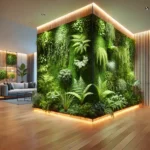 Indoor Vertical Green Wall: A Sustainable and Stylish Way to Transform Your Space
Indoor Vertical Green Wall: A Sustainable and Stylish Way to Transform Your Space
 Low Light Indoor House Plants: Effects, Light Impact, and Maintenance Tips for GULF countries
Low Light Indoor House Plants: Effects, Light Impact, and Maintenance Tips for GULF countries
 Eco-Friendly Farming: Why Aquaponics Is the Next Big Thing in Agriculture
Eco-Friendly Farming: Why Aquaponics Is the Next Big Thing in Agriculture
 Indoor Plants: A Complete Guide to Transform Your Living Space
Indoor Plants: A Complete Guide to Transform Your Living Space
- Blog Categories
- Basic of Artificial Lighting for Plants
- Basic of grow Light
- Case Studies
- General Awareness
- Indoor Vertical Farming
- Medical Plant Research
- Online Tool
- Pitch Grow Light
- Plant Lighting Measurement
- Speed Breeding
- Supplemental Lighting
- Tissue Culture Grow Lights
- Vertical Green Wall
- LED Grow Lights
- Pharma Segment
- General

For Any Information or Enquiry
Quick Link
Other Links
Call Anytime
+91 8604486047
Quick Link
Other Links
Design & Developed By VBTEK



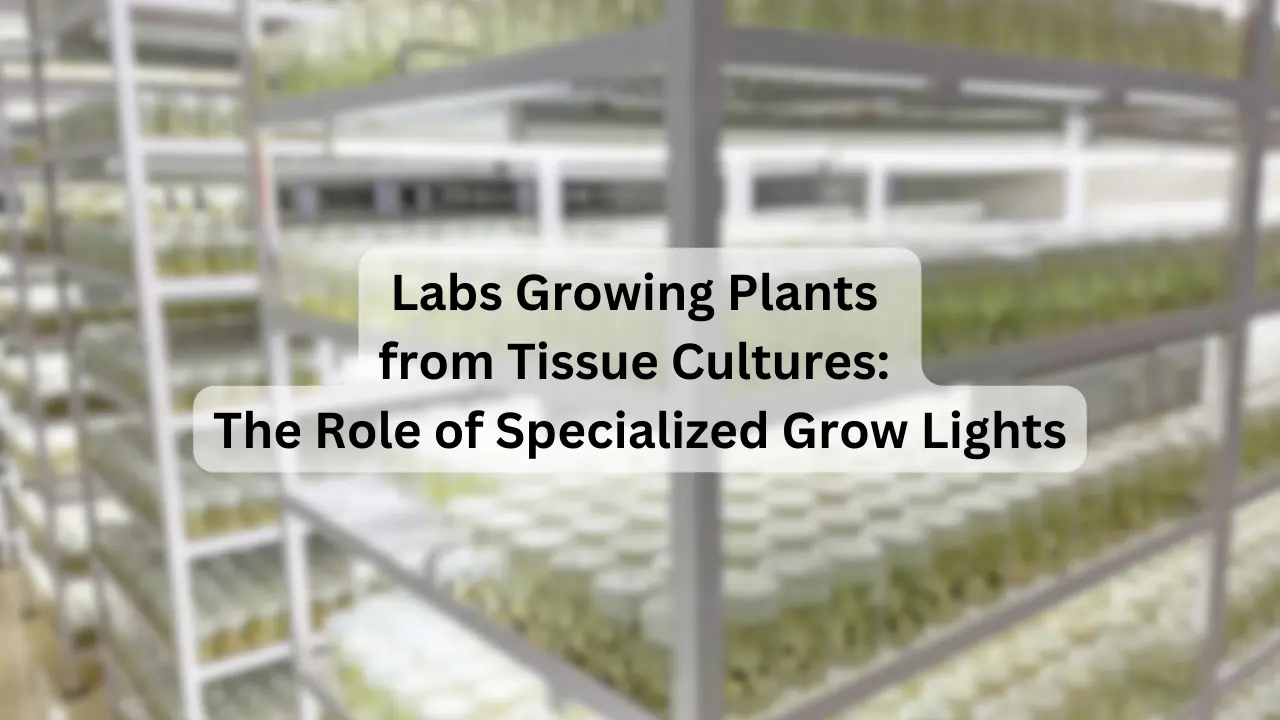
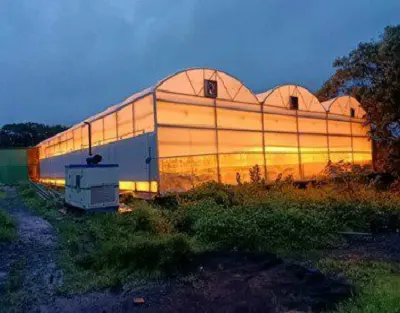
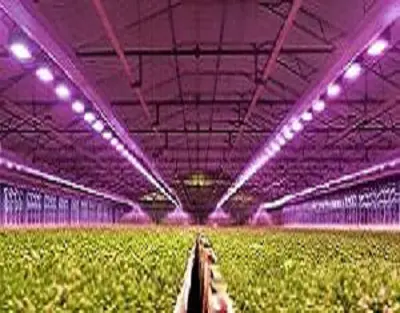
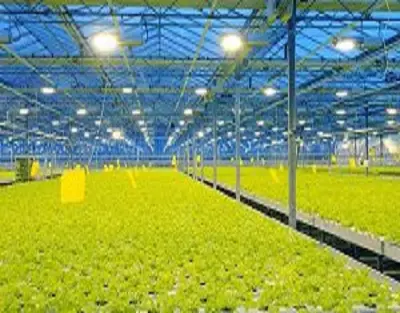


Leave A Comment